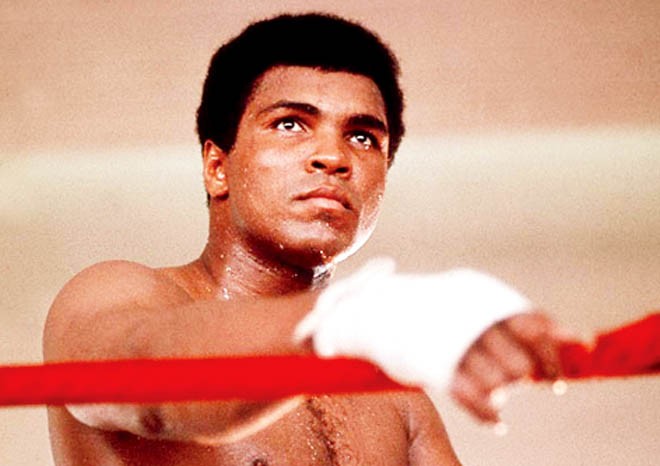
"When will they ever haveanother fighter who writes poems, predicts rounds, beats everybody, makes people laugh, makes people cry, and is as tall and extra pretty as me? In the history of the world and from the beginning of time, there’s never been another fighter like me. Eat your words! Eat your words! I am the greatest."

His hands trembled but there was a serene smile on his face. That’s how I still remember Muhammad Ali. That’s how I saw him on a pleasant Sydney morning on the sidelines of the 2000 Olympic Games.
The news that the greatest sportsperson of all time has left us brought back that cherished memory. As somebody who grew up in the eighties, I unfortunately missed the rise and rise of a black boxer who transcended the sport and in the process changed the greatest nation on the planet: The United States of America.
The Rumble in the Jungle and Thrilla in Manila took place when I wasn’t old enough to be called a toddler. But somehow, if anybody asked me who my favourite sportsman was, even as a child, I would not say Imran Khan or Diego Maradona, then the sporting icons for kids my age. It was always Muhammad Ali. It still is. It will always be.
For the world will never see such flair, such magic again.
His was more than a fairytale.
He was born Cassius Clay in Jim Crow-era Louisville, Kentucky. The son of a sign painter and a house cleaner, Ali was a skinny kid who took to boxing as a 12-year-old to avenge the loss of a stolen bicycle. In six years time he won an Olympic gold medal, against all odds, in Rome and then went on to become the heavyweight champion of the world. Soon, he was the most famous man on the face of the planet. He was different things to different people. The best fighter the world has ever seen, a draft resister, a symbol of racial pride, a joker, a preacher, a separatist, an integrationist, a comedian, an actor, the alpha and the omega.
Much has been written about Ali and much more will continue to be written about him perhaps till the last days of humanity.
Much that has been written about him was about his boxing prowess. But for somebody who didn’t see Ali fighting in his prime, at least not on live TV, to me his greatness stems from the fact that he transcended sport with the sheer weight of his personality. In doing that he changed the world around him.
Ali inspired millions around the world and Pakistan was no exception. During my stint as a young reporter, boxing was one of my beats. Back then when I asked Abrar Hussain Shah, then an Asian Games gold medalist as to why he chose boxing, he said "It was Muhammad Ali".
Abrar was a world class boxer and even came close to winning an Olympic medal for Pakistan. His life was tragically cut short by an assassin’s bullet in Quetta. The reason why he was killed: Abrar belonged to the ill-fated Hazara community.
It was against such hate and violence that Ali stood up. He stood up against many other wrongs of the society. He taught us how even one man can change the world and change it for the better. He fought Parkinson’s disease for more than three decades and fought it bravely.
Nobody will ever float like a butterfly and sting like a bee. Nobody will be the greatest. Nobody will ever be Muhammad Ali.